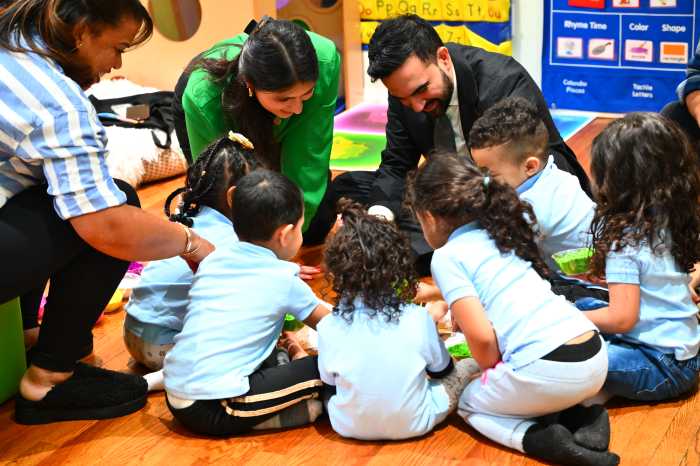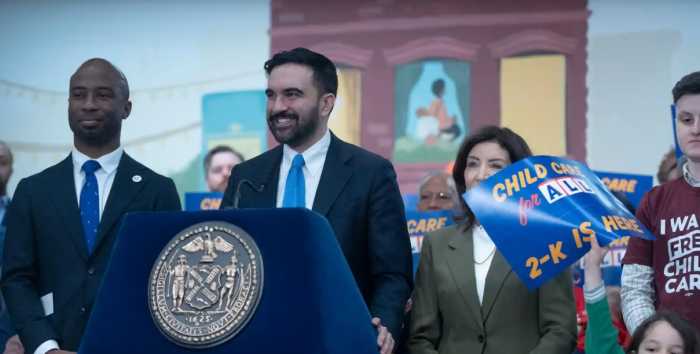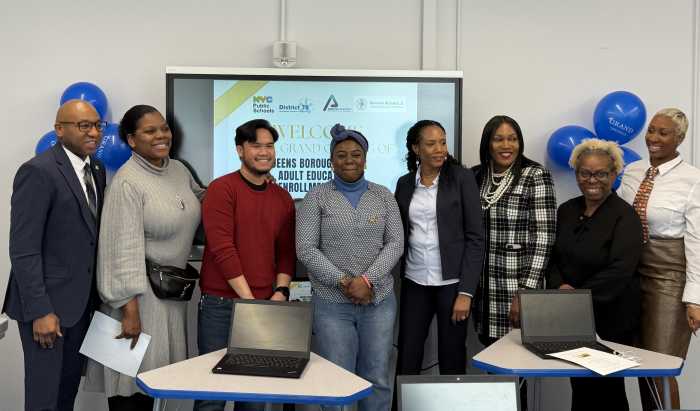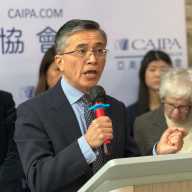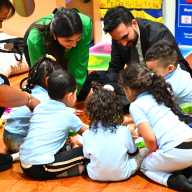Five classrooms at a Head Start center in Woodside are filled with young children learning to read, write and count.
In one classroom, students sing in English, Spanish and Bengali and dance to “La Bamba.”
The coming months could see fewer low-income families in the area receive childcare and early childhood education services because of federal budget reductions. Many of the families include immigrants from Latin America and South Asia.
The cuts are part of sweeping federal budget reductions known as the sequester. They could bring about a shorter program year, employee furloughs or fewer spots for three- to five-year-olds at the Child Center of NY’s Roosevelt Avenue Head Start program.
“We have really been looking at where we would absorb these cuts because overall, the number of federal dollars that you have is never enough to run the program to begin with,” said Linda Rodriguez, director of early childhood programs at the Child Center. “We’re kind of in limbo at this point as a program.”
The cuts, which went into effect March 1, included a five percent reduction in federal Head Start funding. That came out to a $406 million decline. The Department of Health and Human Services said up to 70,000 children nationwide could lose access to Head Start and Early Head Start services as a result.
The city’s Administration for Children’s Services (ACS) is preparing for an estimated $9 million decrease in federal funding for local Head Start programs, spokesman Michael Fagan said in an email. He added that the cuts will take effect July 1.
Local programs, which serve 3,000 youngsters in Queens alone, will have to tighten their fiscal year 2013 budgets.
According to city and Head Start data, 268 children in Community Board 2 were in Head Start last February. The district includes Sunnyside and Woodside. More than half of the children were in the Child Center of NY’s Head Start program, which had 170 slots at the time.
The Woodside center currently offers 85 slots, but space could shrink again in September because of the cuts.
Selina Akter, 35, of Woodside, said she is not sure how she and her husband will manage if their four-year-old son does not get access to Head Start. Akter and her spouse both work full-time.
“I don’t want to leave my job, because I need my job,” she said. “When [my son] is in school, I don’t worry about him.”
To be eligible for the free Woodside Head Start program, families must live within a 10-block radius of the center and earn no more than $23,550 a year for a four-person household, as per federal poverty guidelines.
If ACS, which doles out federal Head Start funds, tells the Woodside center to reduce its number of slots, staff will have to make some difficult decisions. Educational director Marie Mason said with a waiting list of more than 100 students, the center is already unable to accommodate every Woodside family that wants to enroll children in Head Start.
“If we had another center this size, or twice this size, I could fill it tomorrow,” she said.
Rodriguez said the coming drop in funds could mean reductions to a wide array of services, including nutrition and health counseling as well as parenting courses. The agency might also need to end the program early this summer, start up again later or move some children to a less expensive home-based program in which a teacher visits the family once a week for 1.5 hours.
“If we sustain a significant cut in funding, that ultimately is going to affect the enriched type of services that we are able to provide to families,” she said.
Last month, 30 Woodside mothers with children in Head Start visited Congressmember Joseph Crowley’s district office in Jackson Heights to express their concerns.
Ruth Campos, 42, said she worried about missed educational opportunities if her four-year-old daughter and other children from low-income families lose access to Head Start.
“If our children don’t have education, where are we going to go,” she asked. “Where?”
-BY MATT SURRUSCO
RECOMMENDED STORIES

